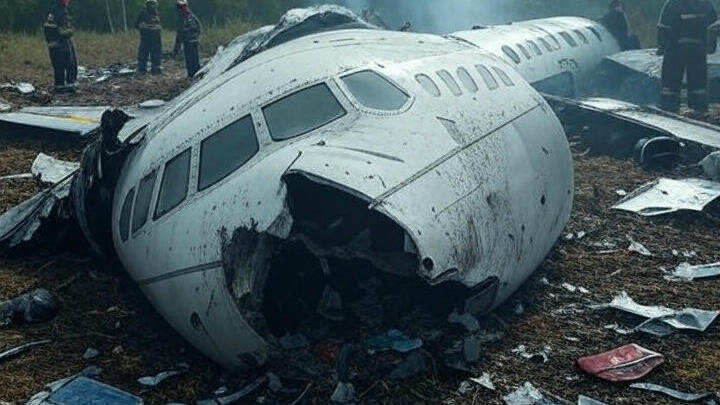Pakistan Rejects IndiGo Pilot’s Emergency Airspace Request During Severe Turbulence Flight
| Incident Summary | |
|---|---|
| Airline | IndiGo Airlines |
| Request Type | Emergency airspace access to avoid turbulence |
| Response | Rejected by Pakistan Civil Aviation Authority |
| Reason | Bilateral aviation restrictions |
| Safety Impact | Forced alternative routing through turbulent weather |
| Diplomatic Context | Ongoing India-Pakistan aviation limitations |
Pakistan Denies IndiGo Pilot’s Turbulence Avoidance Request
In a concerning development for aviation safety, Pakistan’s Civil Aviation Authority rejected an emergency request from an IndiGo Airlines pilot seeking to use Pakistani airspace to circumvent dangerous turbulence conditions. This incident underscores the complex relationship between diplomatic tensions and civilian aviation safety in the South Asian region.
The rejection of the IndiGo pilot’s airspace request demonstrates how political considerations continue to impact routine aviation operations between India and Pakistan. Aviation experts emphasize that such decisions can potentially compromise passenger safety when weather conditions require immediate route adjustments.
Details of the Airspace Denial Incident
According to aviation sources, the IndiGo pilot encountered severe turbulence conditions during a scheduled flight and immediately requested permission to enter Pakistani airspace as the most direct and safest route to avoid the dangerous weather pattern. However, Pakistani authorities declined the request, citing existing bilateral aviation restrictions between the two nations.
Aviation Safety Implications of Airspace Restrictions
The Pakistan-India airspace situation has created significant challenges for regional aviation safety and efficiency. Airlines operating in the region must plan longer routes and carry additional fuel reserves to account for potential airspace denials, which can impact both operational costs and environmental considerations.
| Impact Analysis | |
|---|---|
| Flight Safety | Increased exposure to adverse weather conditions |
| Operational Costs | Higher fuel consumption due to longer routes |
| Flight Duration | Extended travel times for passengers |
| Emergency Response | Limited options during weather emergencies |
Historical Context of India-Pakistan Aviation Relations
The aviation relationship between India and Pakistan has been strained for decades, with periodic closures and restrictions affecting civilian flights. These limitations have forced airlines to develop complex routing strategies and maintain higher operational reserves to ensure passenger safety despite political constraints.
International aviation organizations, including the International Civil Aviation Organization (ICAO), have consistently advocated for the separation of aviation safety from political disputes, emphasizing that civilian flight safety should remain paramount regardless of diplomatic relations.
Industry Response to Airspace Access Challenges
Airlines operating in the South Asian region have adapted their operational procedures to account for potential airspace denials. These adaptations include enhanced weather monitoring systems, increased fuel planning margins, and alternative route development to ensure passenger safety even when preferred routes are unavailable.
The regional aviation industry continues to advocate for more flexible emergency protocols that prioritize safety over political considerations. Aviation safety experts stress that emergency situations requiring immediate route changes should be handled through standardized international aviation protocols rather than political frameworks.
Technical Aspects of Turbulence Avoidance
Severe turbulence poses significant risks to aircraft and passengers, requiring immediate pilot response to ensure safety. Modern aircraft are equipped with weather radar systems that help pilots identify and avoid turbulent areas, but these systems have limitations in rapidly changing weather conditions.
Future Implications for Regional Aviation
This incident highlights the need for improved emergency protocols between neighboring countries to ensure that aviation safety remains the top priority during weather emergencies. Regional aviation organizations are working to develop frameworks that allow for emergency airspace access while respecting national sovereignty concerns.
| Proposed Solutions | |
|---|---|
| Emergency Protocols | Standardized procedures for weather-related emergencies |
| Safety Corridors | Designated routes for emergency situations |
| Real-time Communication | Enhanced coordination between regional air traffic control centers |
| International Oversight | ICAO involvement in regional safety protocols |
Passenger Safety Considerations
The primary concern in this incident remains the safety and comfort of passengers who experienced prolonged turbulence due to the inability to access the most direct route to calmer air conditions. Airlines are required to maintain comprehensive safety protocols, but external factors such as airspace restrictions can limit their operational flexibility during emergencies.
Aviation safety experts recommend that passengers stay informed about potential routing changes during flights in politically sensitive regions and understand that airlines prioritize safety even when facing operational constraints from airspace limitations.
Conclusion: Balancing Diplomacy and Aviation Safety
The rejection of IndiGo’s pilot request to use Pakistani airspace during turbulence represents a broader challenge facing regional aviation safety. While diplomatic tensions between nations are complex and multifaceted, the aviation industry continues to advocate for protocols that ensure passenger safety remains the highest priority during emergency situations.
Moving forward, regional stakeholders including government authorities, aviation regulators, and airline operators must work collaboratively to develop frameworks that protect both national interests and civilian aviation safety. The diplomatic community plays a crucial role in facilitating these discussions to ensure that future incidents prioritize passenger welfare over political considerations.


